The Little Prince is a short novel by the French writer Antoine de Saint-Exupéry. The novel “The Little Prince” was voted one of the best books of the 20th century in France in the books selected by the newspaper Le Monde.
This novel maintains worldwide sales of more than a million copies annually.
The Little Prince
د.ا4.97د.ا5.68
Arabic/English
A moving philosophical story that explores the innocence of childhood and the meaning of life through a pilot’s encounter with a little prince from a distant planet.
| Categories: | Literature, Novels, World literature, Children, Philosophy |
|---|---|
| Tags: | philosophy, stories, wisdom, World Literature |
| Author | |
|---|---|
| Year |
You may also like…
-
The Strange Case of Dr. Jekyll and Mr. Hyde
د.ا4.97Arabic / English
It is an exploratory novel of the dark side of human nature, where Dr. Jekyll, the idealistic medical scientist, is transformed into the monstrous Hyde character through his use of a chemical formula, reflecting the struggle between good and evil within the human soul.د.ا5.68 -
Stefan Zweig’s Letters
د.ا4.97It is a collection of correspondence that reveals Zweig’s deep thoughts and reflections on life, love, and literature, in light of the transformations of his era.
د.ا5.68 -
The Count of Monte Cristo
د.ا4.97Arabic/English
An epic novel of injustice, revenge, and redemption, narrating the journey of a young man who was deceived and unjustly imprisoned, only to return as a vengeful man with extraordinary wealth and power.د.ا5.68 -
The Old Man and the Sea
د.ا4.97Arabic/English
A symbolic novel that depicts the struggle of man with nature through the story of an old fisherman struggling to catch a giant fish in the open sea.د.ا5.68
Related products
-
Two years, eight months and twenty-eight nights
د.ا7.10A book that blends fiction and nonfiction to explore issues of religion, identity and human conflict
د.ا8.52 -
A world that is not ours
د.ا2.13Ghassan Kanafani is a Palestinian novelist, storyteller, and journalist, and is considered one of the most famous Arab writers and journalists in the twentieth century. His literary works, including novels and short stories, were deeply rooted in Arab and Palestinian culture
د.ا3.55 -
Land of sad oranges
د.ا2.13Ghassan Kanafani is a Palestinian novelist, storyteller, and journalist, and is considered one of the most famous Arab writers and journalists in the twentieth century. His literary works, including novels and short stories, were deeply rooted in Arab and Palestinian culture
د.ا3.55 -
Returning to Haifa
د.ا2.13Ghassan Kanafani is a Palestinian novelist, storyteller, and journalist, and is considered one of the most famous Arab writers and journalists in the twentieth century. His literary works, including novels and short stories, were deeply rooted in Arab and Palestinian culture
د.ا3.55 -
The blind and the deaf
د.ا2.13Ghassan Kanafani is a Palestinian novelist, storyteller, and journalist, and is considered one of the most famous Arab writers and journalists in the twentieth century. His literary works, including novels and short stories, were deeply rooted in Arab and Palestinian culture
د.ا3.55 -
Palestinian resistance literature under occupation
د.ا3.55Ghassan Kanafani is a Palestinian novelist, storyteller, and journalist, and is considered one of the most famous Arab writers and journalists in the twentieth century. His literary works, including novels and short stories, were deeply rooted in Arab and Palestinian culture
د.ا4.97 -
The Forty Rules of Love
د.ا10.65is a novel written by the Turkish author Elif Shafak,[1][2][3] Her interest in writing this book was influenced by the degree she received in Gender and Women’s Studies.[4] The book was published in March 2009.[5] It is about the Persian mystic poet Maulana Jalal-Ud-Din, known as Rumi and his companion Shams Tabrizi.[6][7] This book explains how Shams transformed a scholar into a Sufi (mystic) through love.[8] More than 750,000 copies of this book were sold in Turkey and France
د.ا12.78 -
Anichatin and relativity
د.ا2.13In this book, its author, Dr. Mustafa Mahmoud, tries in his style known as ease and extreme logic in understanding the theory of relativity of the physicist Albert Einstein so that it suits the understanding and perception of the general public, and in a strong objection to limiting information to a few scientists under the pretext of depth and specialization, which may lead to the isolation of science, supporting in his book what Einstein himself called for to spread science among people, Einstein hated scientific fortune-telling and fabrication of mystery, claim, and magnification, and he used to say that the truth Never mind.
د.ا4.26

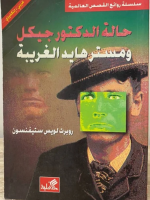
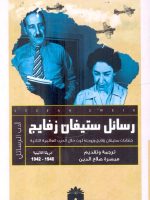
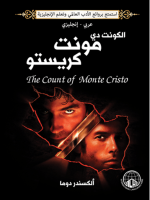
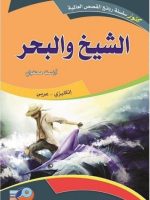
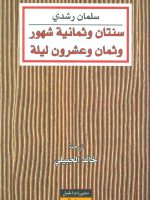
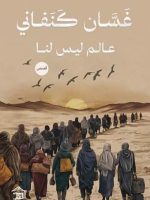

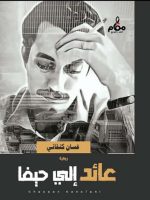

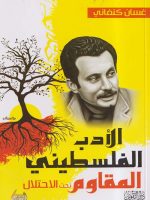
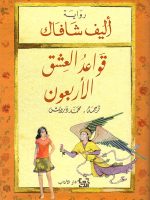
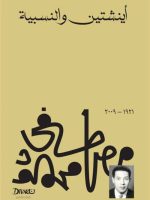
Be the first to review “The Little Prince”